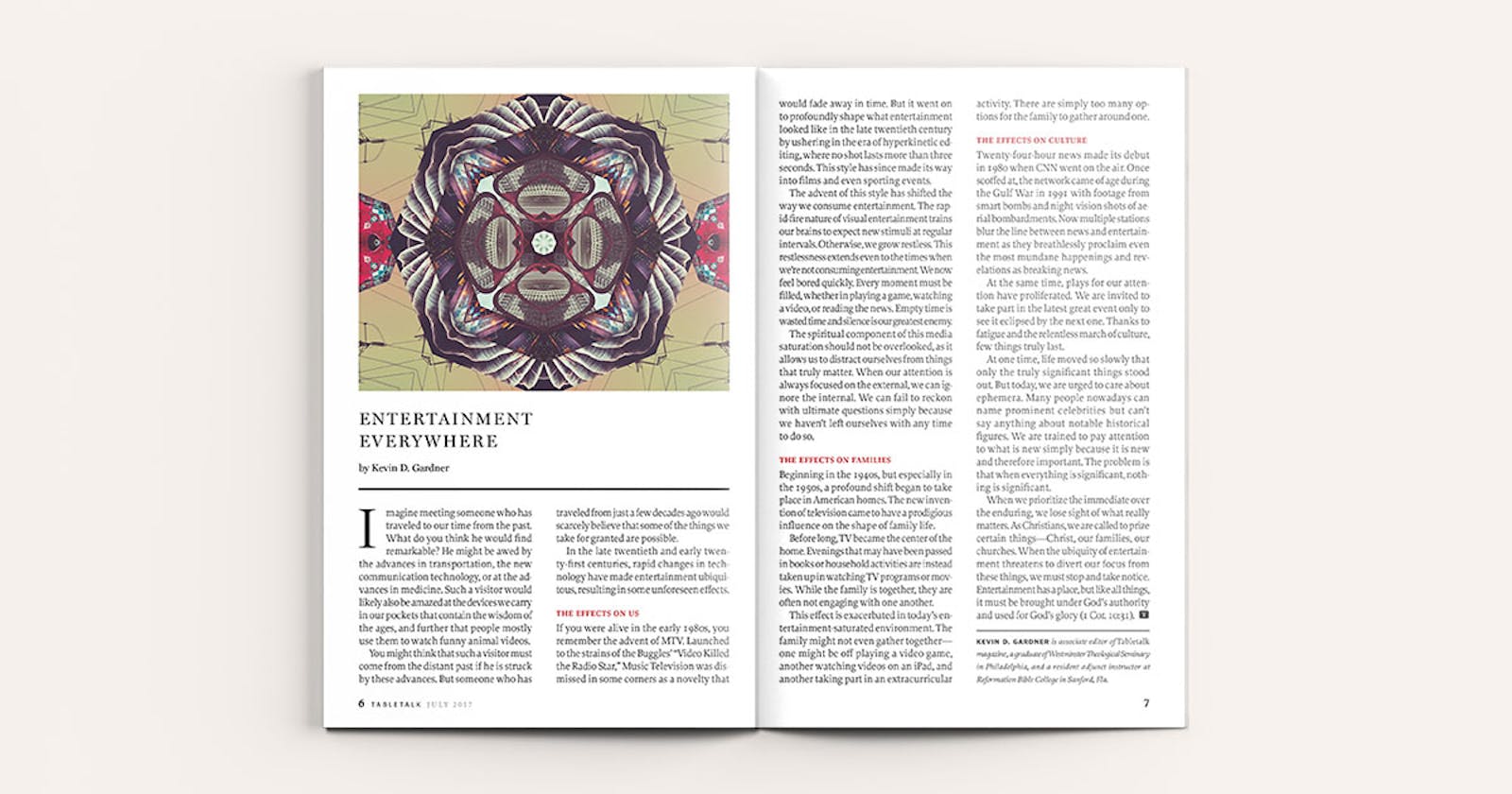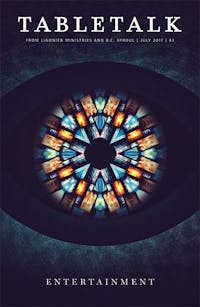
Request your free, three-month trial to Tabletalk magazine. You’ll receive the print issue monthly and gain immediate digital access to decades of archives. This trial is risk-free. No credit card required.
Try Tabletalk NowAlready receive Tabletalk magazine every month?
Verify your email address to gain unlimited access.
Imagine meeting someone who has traveled to our time from the past. What do you think he would find remarkable? He might be awed by the advances in transportation, the new communication technology, or at the advances in medicine. Such a visitor would likely also be amazed at the devices we carry in our pockets that contain the wisdom of the ages, and further that people mostly use them to watch funny animal videos.
You might think that such a visitor must come from the distant past if he is struck by these advances. But someone who has traveled from just a few decades ago would scarcely believe that some of the things we take for granted are possible.
In the late twentieth and early twenty-first centuries, rapid changes in technology have made entertainment ubiquitous, resulting in some unforeseen effects.
the effects on us
If you were alive in the early 1980s, you remember the advent of MTV. Launched to the strains of the Buggles’ “Video Killed the Radio Star,” Music Television was dismissed in some corners as a novelty that would fade away in time. But it went on to profoundly shape what entertainment looked like in the late twentieth century by ushering in the era of hyperkinetic editing, where no shot lasts more than three seconds. This style has since made its way into films and even sporting events.
The advent of this style has shifted the way we consume entertainment. The rapid-fire nature of visual entertainment trains our brains to expect new stimuli at regular intervals. Otherwise, we grow restless. This restlessness extends even to the times when we’re not consuming entertainment. We now feel bored quickly. Every moment must be filled, whether in playing a game, watching a video, or reading the news. Empty time is wasted time and silence is our greatest enemy.
The spiritual component of this media saturation should not be overlooked, as it allows us to distract ourselves from things that truly matter. When our attention is always focused on the external, we can ignore the internal. We can fail to reckon with ultimate questions simply because we haven’t left ourselves with any time to do so.
the effects on families
Beginning in the 1940s, but especially in the 1950s, a profound shift began to take place in American homes. The new invention of television came to have a prodigious influence on the shape of family life.
Before long, TV became the center of the home. Evenings that may have been passed in books or household activities are instead taken up in watching TV programs or movies. While the family is together, they are often not engaging with one another.
This effect is exacerbated in today’s entertainment-saturated environment. The family might not even gather together—one might be off playing a video game, another watching videos on an iPad, and another taking part in an extracurricular activity. There are simply too many options for the family to gather around one.

the effects on culture
Twenty-four-hour news made its debut in 1980 when CNN went on the air. Once scoffed at, the network came of age during the Gulf War in 1991 with footage from smart bombs and night-vision shots of aerial bombardments. Now multiple stations blur the line between news and entertainment as they breathlessly proclaim even the most mundane happenings and revelations as breaking news.
At the same time, plays for our attention have proliferated. We are invited to take part in the latest great event only to see it eclipsed by the next one. Thanks to fatigue and the relentless march of culture, few things truly last.
At one time, life moved so slowly that only the truly significant things stood out. But today, we are urged to care about ephemera. Many people nowadays can name prominent celebrities but can’t say anything about notable historical figures. We are trained to pay attention to what is new simply because it is new and therefore important. The problem is that when everything is significant, nothing is significant.
When we prioritize the immediate over the enduring, we lose sight of what really matters. As Christians, we are called to prize certain things—Christ, our families, our churches. When the ubiquity of entertainment threatens to divert our focus from these things, we must stop and take notice. Entertainment has a place, but like all things, it must be brought under God’s authority and used for God’s glory (1 Cor. 10:31).
